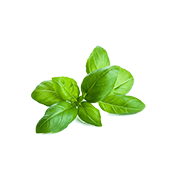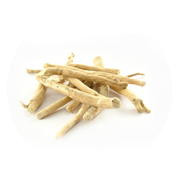Ayurveda is one of the oldest and complete systems of healing, and healthcare has known to humanity.
Many herbs and spices contain potent plant compounds that can heal, ease pain, prevent diseases like Alzheimer’s, and even fight off cancer, heart disease, and other joint and critical illnesses.

Today we think of herbs as culinary flavoring agents, and they are essential to any excellent cook. An excellent way to quickly fill your body with vitamins, minerals, and energy is with HERBS.
Herbs and spices have been seen as extremely important throughout history. With technology and sciences today, we understand and know why they are so amazing.
Here, below 5 Herbs health benefits of healthy and better lifestyles.
1. Ginseng
Ginseng is one of the legendary herb known for its excellent properties. Ginseng is adaptive, which can help to cope with both mental and physical stresses.

Usually referred to as the King of all herbs, ginseng is a promising agent associated with improving general well-being. It is also considered an aphrodisiac and is widely used by the Chinese to enhance physical behavior and treat Erectile Dysfunction (ED). Ginseng is known to help with libido, copulatory performances, sperm quality, and infertility in men. Also, ginseng use boosts testosterone levels in men. Take Cenforce D & Tadalista 10 pills is used to prevent ED Problems in men.
2. Basil
Basil, ‘The Oldest Herb,’ is one of the best herbs for cooking and health & Wellness. Sweet Basil or Basil is a most popular culinary herb botanically known as Ocimum basilicum of the family Lamiaceae (mint). It loads Basil with Vitamins!

According to the USDA, –, 1/2 Cup Basil includes:
• 56 milligrams vitamin A (24%)
• 88 milligrams vitamin K (108%)
• 0.24 milligrams manganese (12%)
• 4 milligrams vitamin C (8%)
Basil, of course, is used to adding flavor to a variety of recipes, but what may surprise you is the numerous benefits of basil that make it well-known for its immunity-enhancing properties.
Basil has a distinct flavor, which means that you can’t just add it to any dish you make and expect it to taste good. But when it basil works, it is delicious.
Other health benefits of Basil Herbs contain anti-inflammatory, antioxidant, cancer-fighter, pain-reducer, fever-reducer, liver-protector, blood vessel protector, and stress reducer, and last one immune booster.
This herb can quickly be grown indoors since it does not need much sunlight. That is why people all over the world till it at home and reap its benefits.
3. Cinnamon
Cinnamon is an absolutely delicious spice, a native to Ceylon, the old name of Sri Lanka. Cinnamon has a very high content of antioxidants and can provide us with many health benefits. Almost all its ingredients, such as flower, leaf, bark, and root, have some culinary and medicinal use.

There are two kinds of cinnamon; Cassia cinnamon is the one that is commonly used and Ceylon cinnamon, which is also known as pure cinnamon.
It can infuse powder of the bark with warm water and honey to reap its benefits. The essential oil from the cinnamon herb bark also has soothing impacts on the mind and body.
Cinnamon has potent antioxidant activity, helps fight inflammation, and has lower cholesterol levels and triglycerides in the blood.
Other Health Benefits of Cinnamon include improving digestion, controlling diabetes, Fighting heart disease, Insulin sensitivity, Blood sugar level, Neurodegenerative disease (Parkinson’s and Alzheimer’s diseases), and protection from cancer, Combat fungal and bacterial infections, and last is HIV Virus, etc.
4. Ginger
Ginger has been shown to deliver several powerful health perks. It was also the top herb that prompted the opening of the herb and spice trade routes worldwide. Ginger has a pungent smell and a warming impact when consumed. Most herbs and spices are comparatively new to the West. On the other hand, Ginger has been familiar to the likes of Europe for over 2,000 years.

Recently, ginger has been elevated to “superfood” status. Ongoing analysis continues to confirm the various health benefits of ginger.
Ginger tea benefits include relieving pregnancy-related nausea & vomiting. Scientific studies suggest ginger is useful for this purpose, but results are mixed on whether ginger is helpful for nausea caused by motion, chemotherapy, or surgery. It is unclear whether ginger effectively treats rheumatoid arthritis, osteoarthritis, or joint and muscle pain.
5. Ashwagandha
One of the most elegant herbs known to man with incredible health benefits, Ashwagandha, is regarded as the “King of Plants” in the herbal kingdom. The powerful herb is packed with plenty of original properties that the human body may require for a healthy run.

It’s a mouthful to pronounce, but Ashwagandha — otherwise known as Withania somnifera — packs several benefits.
The Ashwagandha plant is also generally known as poison berry, winter cherry, and Indian ginseng. The herb has been used for more than 2500 years to restore overall health benefits and improve longevity.
In today’s herbal medicine, the herb is categorized as an adaptogen, and it is used to treat fatigue, stress, anxiety, and nervous exhaustion and enhance memory.
Ayurveda considers Ashwagandha to be an overall health medicine.
Ashwagandha helps to provide crucial immune support, boosting the immune system thanks to its powerful antioxidant properties.
Not cinnamon health benefit, but a good reason to love cinnamon, it versatile. It works with sweet dishes alike. Consider that many curries and delicious Moroccan dishes include cinnamon. It’s not just for apples anymore.
Please Note: This blog is to be considered as general information. Please consult with your appropriate health care professional concerning the use of these herbs.